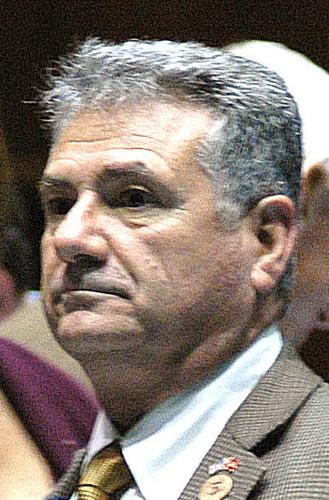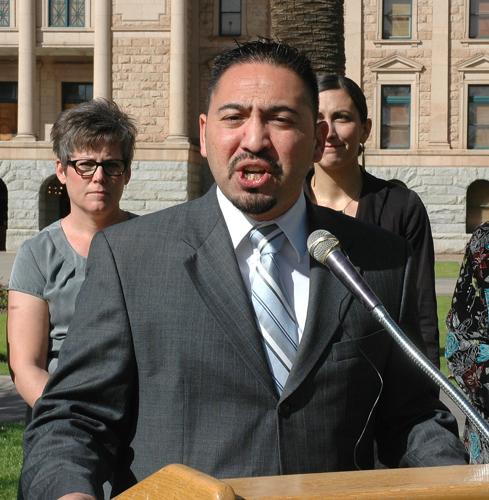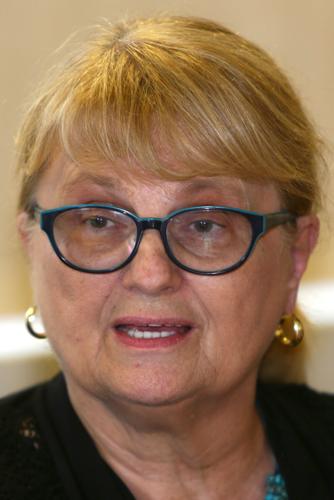PHOENIX — State senators confirmed four new members to the Commission on Appellate Court Appointments over the objections of Democrats who complained the 15-member panel lacks political, gender and ethnic diversity.
The Republican-controlled Senate voted 16-13 Tuesday along party lines to confirm the four nominees, including three women, chosen by Republican Gov. Doug Ducey.
One GOP senator sought to shut down Democrats’ opposition by quoting from Dr. Martin Luther King’s “I Have a Dream” speech.
Sen. Sonny Borrelli of Lake Havasu said people voting against Ducey’s picks were ignoring King’s dream that children “will one day live in a nation where they will not be judged by the color of their skin but by the content of their character.”
But Sen. Martin Quezada, D-Glendale, accused Borrelli of “verbal jujitsu,” saying Borrelli failed to note that other parts of the 1963 speech mentioned the inequalities that first needed to be overcome.
“We are nowhere near the place where we can simply judge everyone by the content of their character and not the color of their skin,” Quezada said.
There is a need to promote diversity, he said, adding that it is also a requirement under the Arizona Constitution, which says the governor should “endeavor to see that the commission reflects the diversity of Arizona’s population.”
Ducey’s four non-attorney appointments to the commission fail that test, Democrats said.
The issue of who gets nominated to serve on appellate courts is significant because that panel screens nominees for the Arizona Supreme Court and state Court of Appeals.
This is far different than the system for the U.S. Supreme Court and other federal courts, where the president can choose whoever he wants, subject only to Senate confirmation.
In Arizona, the governor has to choose from the list — and only from the list — sent by the appellate court commission. That’s why the commissioners and not the judicial appointments are subject to Senate confirmation.
“These are the gatekeepers for the people who institute justice in our society,” said Quezada. “These are the ones who are going to ensure that the public has confidence in our justice system, that it will actually be just.”
The new appointees will have work almost immediately: The commission is set to begin screening replacements this summer for retiring Chief Justice Scott Bales.
Ducey press aide Patrick Ptak defended the four appointments, pointing out that three are women and two are political independents.
But Sen. Juan Mendez, D-Tempe, said that Kathryn Townsend, one of the “independent” nominees, had been a Republican precinct committeewoman who made “sizable” political donations to GOP candidates. He called her “a Republican passing off as having no party preference or leanings.”
And Matthew Contorelli, the other independent, is married to the daughter of state Rep. Steve Pierce, R-Prescott, and lobbies for Ducey’s Arizona Commerce Authority.
Sen. Andrea Dalessandro, D-Green Valley, said the issue goes beyond these four particular nominees. She said the governor in his five years in office has failed to find a single Democrat whose name he has advanced for the commission.
She said such partisanship wasn’t the case when Janet Napolitano was governor. Of the 15 nominees the Democratic governor made to the commission, eight were Democrats and seven were Republicans, Dalessandro said.
Ptak sidestepped questions about whether Ducey has, since taking office in 2015, been unable or unwilling to find Democrats in a state where they make up close to a third of registered voters.
Instead, Ptak pointed out there re two other vacancies to be filled.
“We’ll continue to adhere to the principles outlined in the Constitution,” he said.
Even Republicans who supported Ducey’s nominees Tuesday did not defend the governor’s prior record.
Sen. Eddie Farnsworth, R-Gilbert, said he agrees that the Arizona Constitution requires the commission to reflect the state. But he preferred to focus not on Ducey’s prior nominees, but on the four before the Senate.
“If you take the totality of these people that have been nominated, we are moving much closer to reflecting Arizona,” Farnsworth said.
The issue of who serves on the appellate court commission is important beyond nominating judges. This panel also screens nominees for the Independent Redistricting Commission.
That commission will draw the lines for legislative and congressional districts following the 2020 census. Those lines will have a major impact on whether Republicans keep control of the state House and Senate beyond 2022.
The debate over the nominees took an ugly turn at one point when Borrelli argued that Laura Ciscomani, an executive at the Arizona Chamber of Commerce and Industry, appears to help the commission’s diversity because she is Hispanic. Yet he noted that Democrats were still opposed to her.
“I find it striking that she’s a person of color, but maybe not dark enough?” Borrelli said. “The only discrimination I see here is because she’s registered as a Republican.”
“The comment made about ‘not dark enough’ is uncalled for and unfair,” responded Sen. Lisa Otondo, D-Yuma.
Sen. Jamescita Peshlakai, D-Window Rock, called Borrelli’s comments “out of line.”
She said the point the Democrats were arguing is that the appellate court commission as a whole does not reflect the population of Arizona. And that, she said, goes beyond finding a single Hispanic woman.
“The governor needs to nominate folks that are truly representative of our district and the indigenous people,” Peshlakai said.









